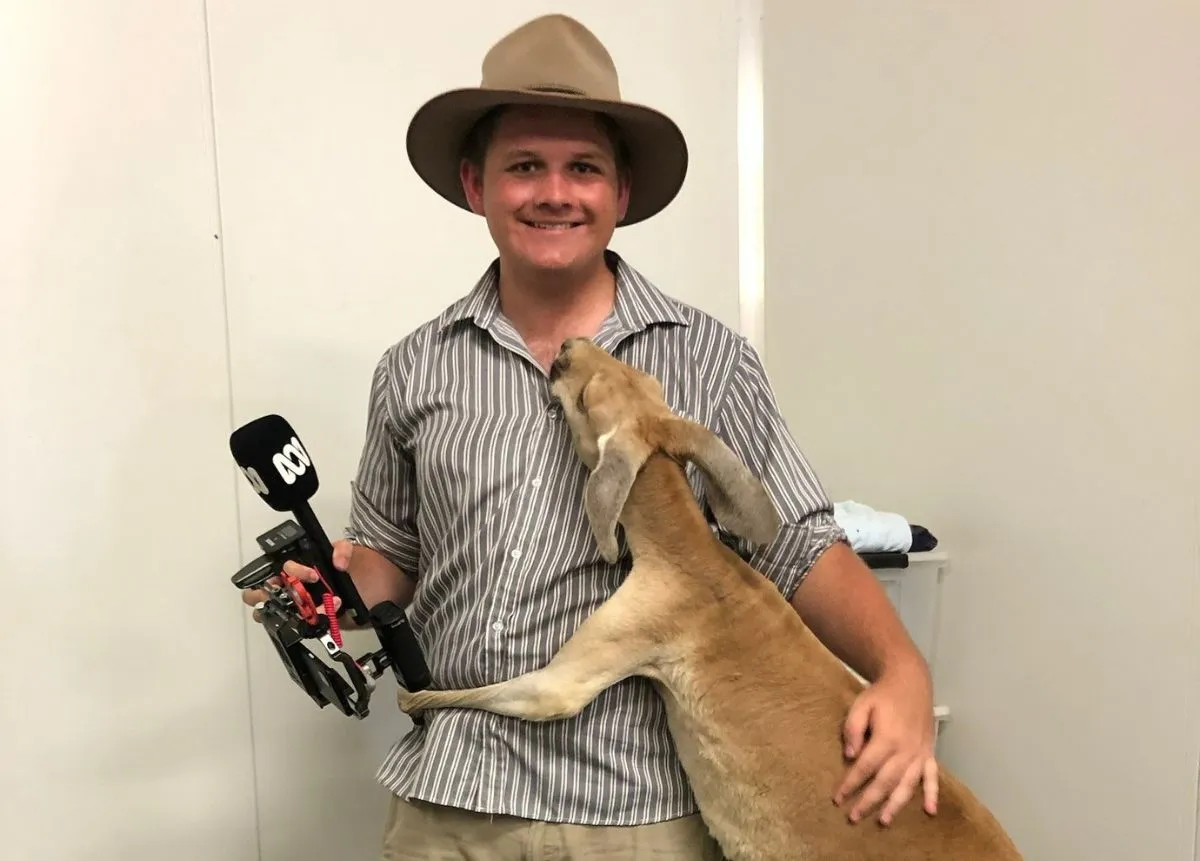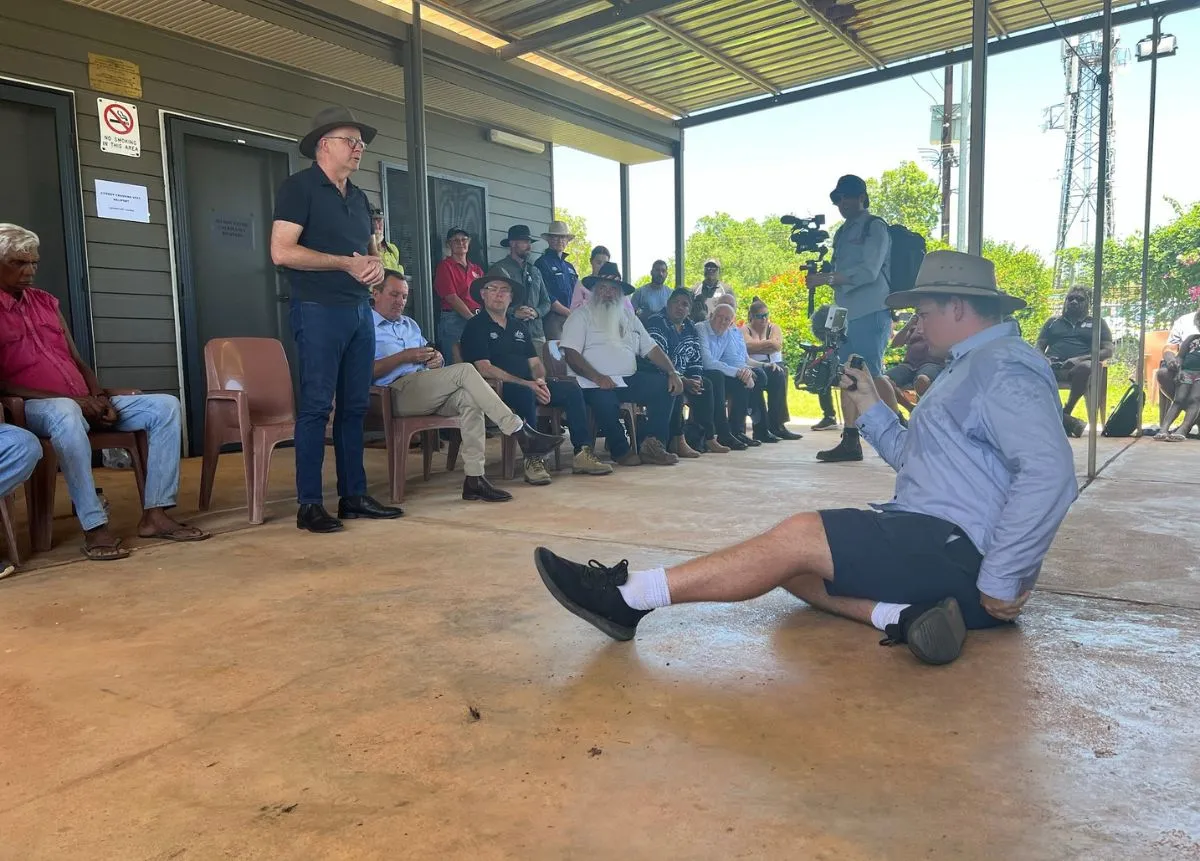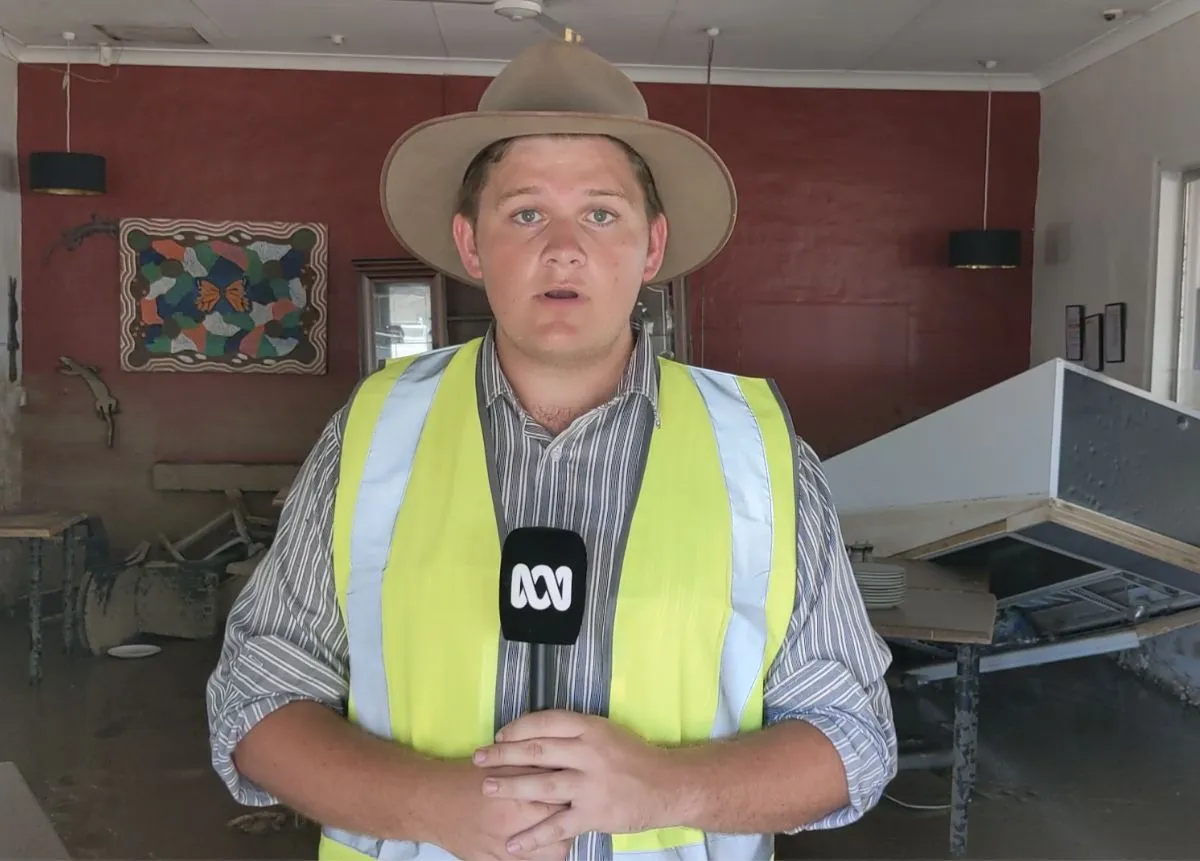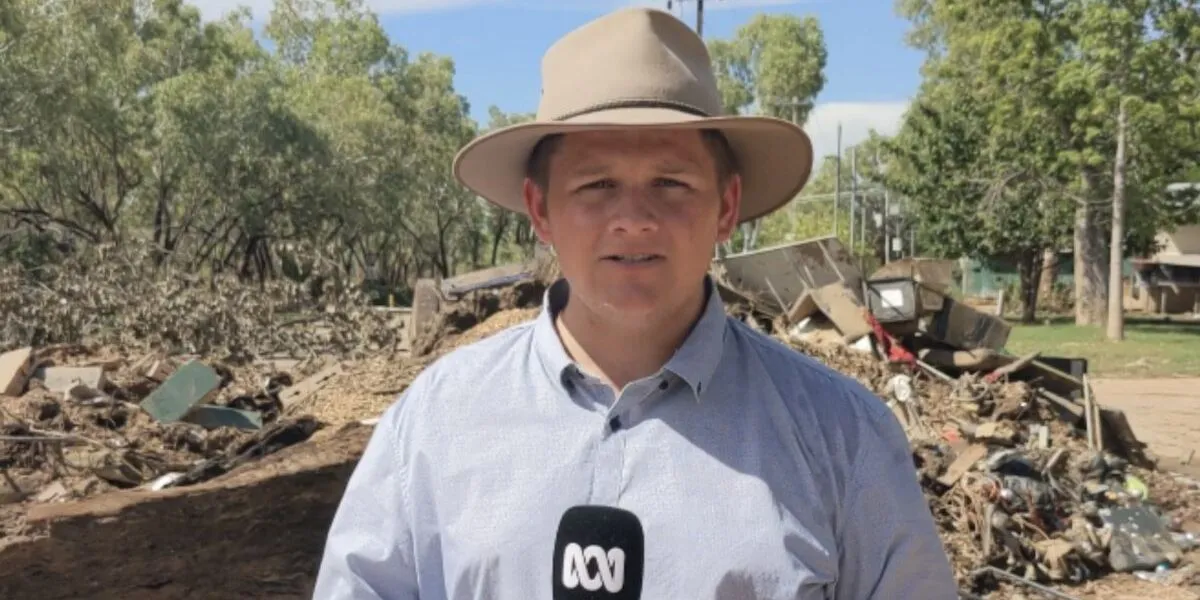When Curtin journalism student Dylan Storer went home to Fitzroy Crossing for Christmas, he found himself in the middle of a natural disaster.
Author | Raquel De Brito
Armed with just a mobile phone, Curtin University journalism student Dylan Storer still managed to provide ground-breaking coverage of the devastating floods that ravaged his hometown of Fitzroy Crossing at the start of the year.
He unwittingly found himself at the centre of the extreme weather event caused by Cyclone Ellie, which saw torrential rain engulf the town and destroy homes and local businesses.
“I grew up here and my family still lives in Fitzroy Crossing so I came up for the Christmas/New Year break,” he said.
His two-week break took an unexpected turn when the record-breaking floods wreaked havoc on the Kimberly town, in northern WA.

The locals were really appreciative of Dylan and his efforts to tell their story.
“The floods happened a lot quicker than we expected, but the water came up to a level that had never been seen before in WA history so that essentially meant that all of the roads in and out of Fitzroy Crossing were cut off and the airspace over Fitzroy Crossing was completely shut down to only essential uses,” he said.
In full-circle moment that was surely bittersweet for Dylan, he found himself reporting for ABC News about the town that had first ignited his passion for journalism.
“There’s not a lot to do here in town if you’re not a mad sports person, which I’m not. When I was about seven or eight I went to the radio station to have a look around and over the next few years I pretty well developed the love for it,” he said.
“I went through music programming and then started to interview people. And it’s really stuck with me, I think just the ability to tell stories, and I find radio and broadcasting quite an intimate medium.”

Dylan always finds himself with a camera and microphone in hand.
As a casual ABC reporter in the midst of a hopeless situation, Dylan made himself useful while the destruction of the floods unfolded around him.
“I happened to be in the wrong place at the right time. I was here in Fitzroy Crossing with nothing more than a mobile phone and all of a sudden I was getting phone calls left, right and centre to assist in the coverage of it,” he said.
“So for the first few days I was basically just using my mobile phone, I’m still pretty well only using my mobile phone at the moment.
“To paint a little bit of a picture, in the early crosses I had absolutely no equipment. I couldn’t even find a pair of earphones in the house that worked so it was literally a mobile phone on a small little stand.’
With no access to a tripod, Dylan recalled sitting his phone on top of a ladder while doing live crosses to ABC News.
“I was standing in front of a phone on a ladder close to floodwaters and people sort of driving and walking past thinking, what the hell’s going on? I was walking up the street with a ladder over my shoulder because I didn’t have access to a car either, so it was interesting for the first few days.”
But even with no equipment and second-rate audio, Dylan managed to produce some of the most important coverage to come out of the natural disaster.
Although challenging, he pushed his emotions aside to shine a vital spotlight on the issues facing locals who had lost everything and were staring down the barrel of a lengthy recovery process.

Reporting on the devastation of the floods in his hometown was quite the experience for the aspiring journalist.
“Elders and older people here in town that have known me since I was a little toddler, people that are working here in town and helping out that I went to school with – it’s certainly an interesting sort of predicament reporting on your own hometown,” he said.
He recalled one particularly challenging day when the Prime Minister and Premier visited, and emotions were running high among locals.
“I think there was a lot of thankfulness in the community for the visits from the leaders but there were a lot of raw moments that still came through and I think a lot of people were very thankful for being able to speak their minds to the leaders,’ he said.
“I think it was the first time that we’d been able to get supplies into town so there were a lot of people that were getting some food for the first time in a while, stocking back up. There were people that were really starting to come to terms with the fact that they’d lost everything and that there was a long, long road to recovery.
“It became clearer by then that the bridge was going to be out of action for maybe two years. And the repercussions of that to the local community as well.
“It was certainly the longest day that I’d worked covering that and what flowed on from that. And it was sitting back afterwards as well and sort of thinking, a few days ago I’d just been on holiday.”
However, Dylan’s experience has reminded him of the important role journalism plays in society.
“It’s unfortunate it happened but I’m very thankful that I was here to be able to help tell that story as well,” he said.
“I think there are a lot of stories to be told everywhere and there are a lot of stories that continue to go untold in every corner of the country, but particularly in regional and remote areas and I’m really passionate about working to tell them.”
Dylan is currently in the final year of his journalism studies at Curtin and post degree hopes to pursue a media career where he can continue sharing the often-untold stories from Australia’s regions.
Author | Raquel De Brito
___



